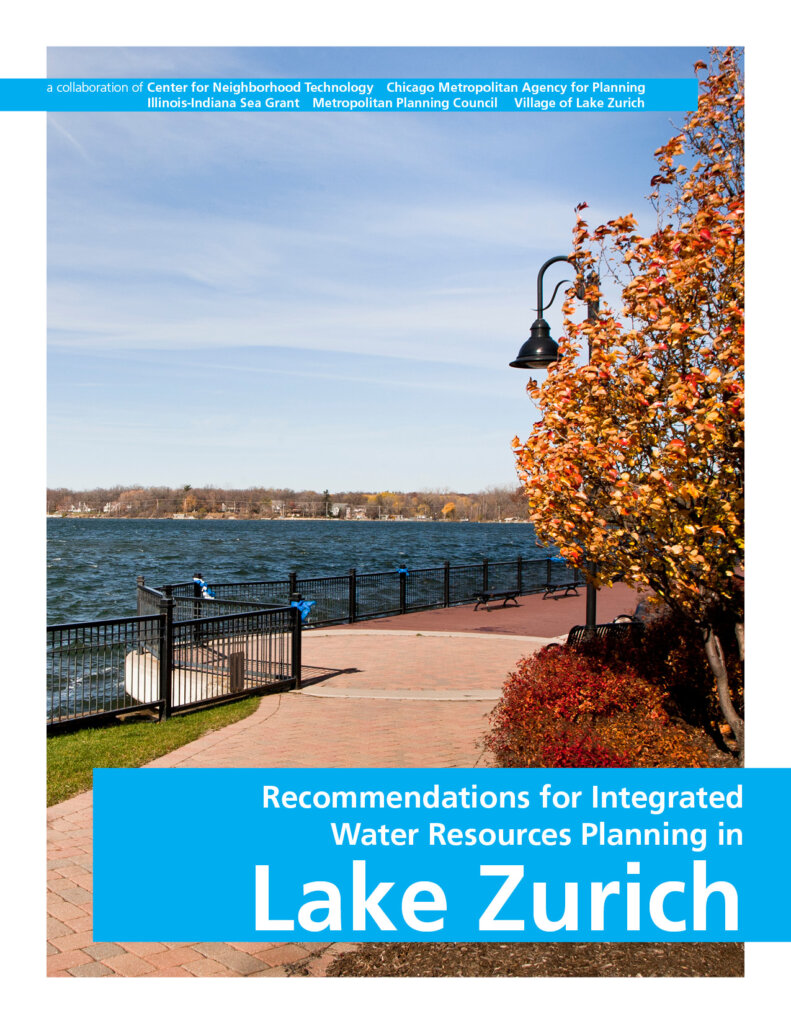Recommendations for Integrated Water Resources Planning in Lake Zurich

Water itself knows no political boundaries. Rivers flow from one community to another, aquifers span entire regions, rain falls where it will. Yet water resources management is inherently political.
Northeastern Illinois’ 284 municipalities plan and implement many facets of water supply, stormwater, and wastewater management at the local level. Factors such as changes in municipal leadership, water’s rank among local priorities, and municipal finances determine whether water resources are managed well. At the same time, external factors such as compliance with federal, state or county regulations, competitiveness for loans or grants, and the real estate development market can affect local decisions.
This report is the culmination of one year of cooperative work, from March 2011 through March 2012, between the Village of Lake Zurich and a project team led by Metropolitan Planning Council (MPC) in partnership with the Center for Neighborhood Technology (CNT), Chicago Metropolitan Agency for Planning (CMAP), and Illinois-Indiana Sea Grant (IISG). Through MPC’s Community Building Initiative, the team also convened a 13-member task force consisting of volunteer members with expertise in ecology, economics, engineering, law, planning, and utility management, to assist and advise the project team.
As Lake Zurich moves ahead with developing its strategic plan for water resources, this report will help village officials and staff set priorities; clearly articulate the advantages, disadvantages and uncertainties of any given decision to residents and other stakeholders; and choose and implement optimal practices to meet the community’s goals. The report also will help such external partners as Lake County, the Ill. Environmental Protection Agency (Ill. EPA), and neighboring municipalities better understand the direction and goals of Lake Zurich.